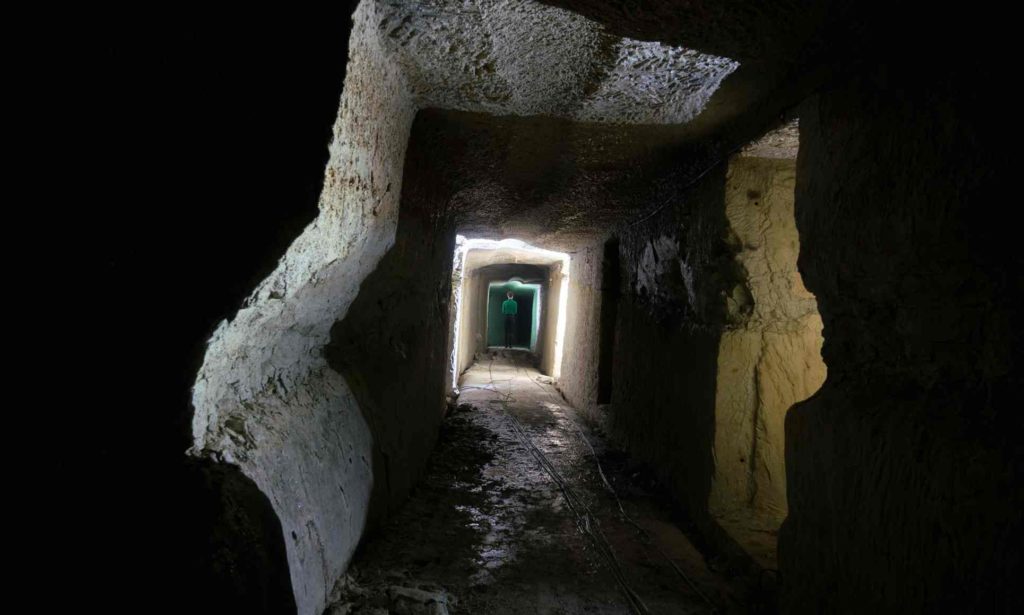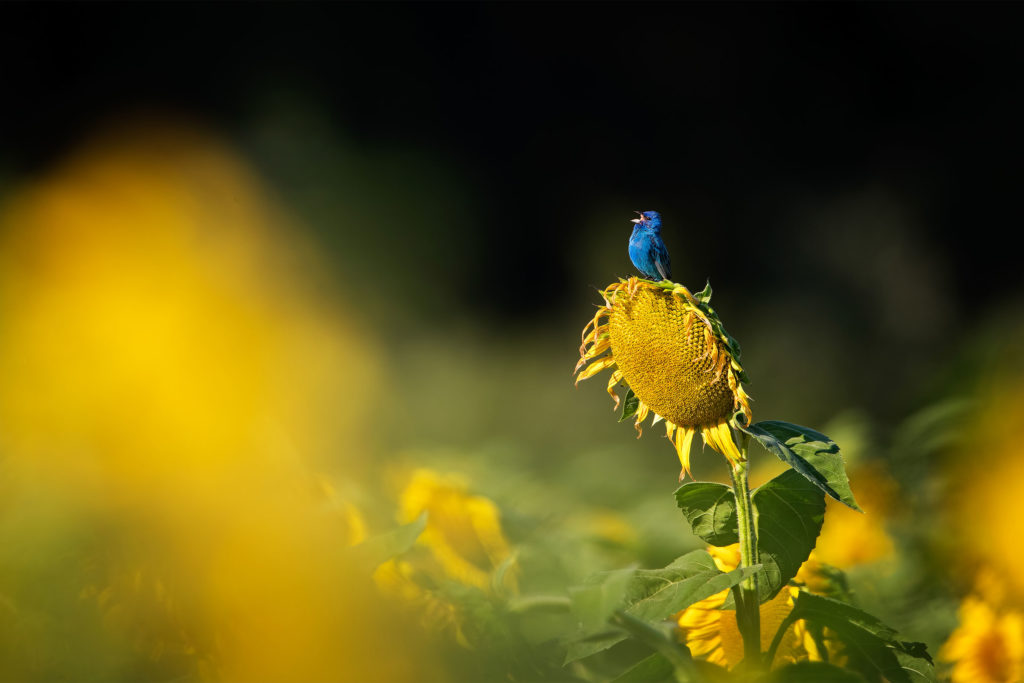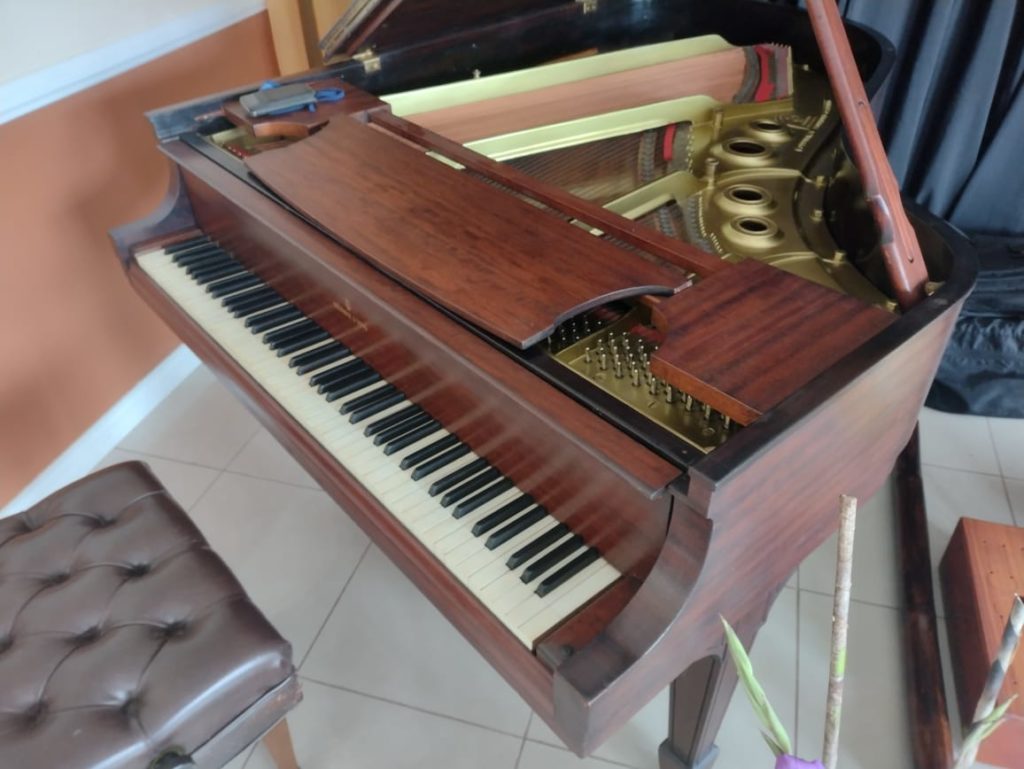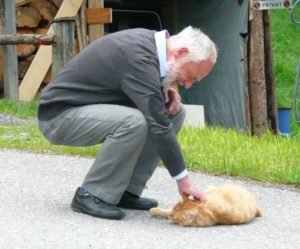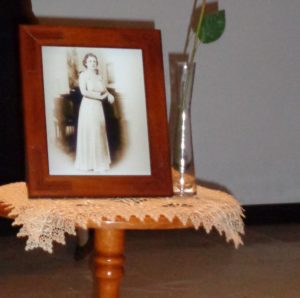Those who dwell, as scientists or laymen, among the beauties and mysteries of the earth are never alone or weary of life. Whatever the vexations or concerns of their personal lives, their thoughts can find paths that lead to inner contentment and to renewed excitement in living. Those who contemplate the beauty of the earth find reserves of strength that will endure as long as life lasts. There is symbolic as well as actual beauty in the migration of the birds, the ebb and flow of the tides, the folded bud ready for the spring. There is something infinitely healing in the repeated refrains of nature-the assurance that dawn comes after night, and spring after the winter. ~Rachel Carson
The Sense of Wonder
Tag Archives: Getting inside the moment
May Sarton on Solitude and Creativity
It is raining. I look out on the maple, where a few leaves have turned yellow, and listen to Punch, the parrot, talking to himself and to the rain ticking gently against the windows. I am here alone for the first time in weeks, to take up my “real” life again at last. That is what is strange—that friends, even passionate love, are not my real life unless there is time alone in which to explore and to discover what is happening or has happened. Without the interruptions, nourishing and maddening, this life would become arid. Yet I taste it fully only when I am alone…
My need to be alone is balanced against my fear of what will happen when suddenly I enter the huge empty silence if I cannot find support there.
The value of solitude — one of its values — is, of course, that there is nothing to cushion against attacks from within, just as there is nothing to help balance at times of particular stress or depression.
Does anything in nature despair except man? An animal with a foot caught in a trap does not seem to despair. It is too busy trying to survive. It is all closed in, to a kind of still, intense waiting. Is this a key? Keep busy with survival. Imitate the trees. Learn to lose in order to recover, and remember that nothing stays the same for long, not even pain, psychic pain. Sit it out. Let it all pass. Let it go.
One Day at a Time
One day at a time –
One cloud humming in a pure sky,
One dying tree,
Russet leaves falling.
The flight of one hawk calling
The laugh of one young monkey
In the towering trees,
One caught gecko cheeping
Between my cat’s teeth.
One call from a friend –
Oh, how deep this goes!
One coyote’s song
So wild, so old.
All I have to do,
While I am waiting,
Is listen
One day at a time.
SSH
Perspective
I am standing on the seashore. A ship at my side spreads her white sails to the morning breeze and starts for the blue ocean. An object of beauty and strength, she sails into the distance diminishing in size, until she hangs like a speck of white cloud where the sea and sky mingle.
Then someone says, “There! She’s gone.” Gone where? Gone from my sight—that’s all. She is just as large in mast and hull and spar as she was when she left my side, and she is just as able to bear her load of living freight to the place of her destination.
But her diminished size is in me, not in her; and just at the moment when that someone at my side says, “There! She’s gone,” there are other eyes watching her coming and other voices ready to take up the glad shout, “Here she comes!”
Henry Van Dyke
When the Music Plays You
“I love trying to spin the world into a web of words. And I love those times when it feels like those words turn into a world of their own.” — Rose Auslander
I am seventeen and practicing the piano. I go at it two hours a day, and no longer need the nagging of my parents, when I used to prefer playing softball after school. The work itself is its own reward, playing a passage over and over at different rhythms, until it comes out smooth as silk.
I rarely practice after dark, since I don’t want to disturb my father, who may have brought work home. But now that I’m on the yearbook committee, there are days when I simply have to. It’s winter and the room is dark except for the light over the piano, and I feel my father’s entrance and his quiet sigh as he sits down well away from the piano and me.
It is near the end of my practice session, when I play something for pure pleasure, and tonight it’s a Schubert impromptu, a piece I love to play, complex and romantic. I am aware that my father is in the room; I am aware of all the ambiguities of our relationship; I know, however, that my ability to play so well has pleased him, and that falls into the complexity of Schubert, me, my father, the abuse, all the pain of never knowing if he has loved me or not.
Somehow, I throw myself into the music, I become the music, the music — Schubert — is playing me. It’s transformative. I am no longer in this darkened living room. My father is still here, because there is a musical line connecting us, and I thrill as the phrases and chords and notes become a world of their own — a world described by incredible beauty and freedom. And at the end, I bow my head over the keys and feel full of the act of love I have just performed.
Silence
Once again, I have run across a fragment that long ago I stashed in a dark corner of my computer for future use, and I failed to attribute it. I like this piece because it fits so well with my focus on the natural world, both in Evelio’s Garden, and in my daily life. If anyone recognizes this piece or its writer, please let me know so I can attribute it properly. Thanks. SSH
Hello chatter, my old friend.
The sounds of silence are a dim recollection now, like mystery, privacy and paying attention to one thing — or one person — at a time.
As far back as half-a-century ago, the Swiss philosopher Max Picard warned: “Nothing has changed the nature of man so much as the loss of silence,” once as natural as the sky and air.
As fiendish little gadgets conspire to track our movements and record our activities wherever we go, producing a barrage of pictures of everything we’re doing and saying, our lives will unroll as one long instant replay.
There will be fewer and fewer of what Virginia Woolf called “moments of being,” intense sensations that stand apart from the “cotton wool of daily life.”
“In the future, not getting any imagery or story line or content is going to be the equivalent of silence because people are so filled up now with streaming video,” said Ed Schlossberg, the artist, author and designer who runs ESI Design. “Paying attention to anything will be the missing commodity in future life. You think you’ll miss nothing, but you’ll probably miss everything.”
Schlossberg said that, for a long time, art provided the boundary for silence, “but now art, in some cases, is so distracting and intense and faceted, it’s hard to step into a moment. Especially when you’re always carrying a microcamera and a screen all the time, both recording and playing back constantly rather than allowing moments of composition and stillness when your brain can go into a reverie.”
Listening from the Heart
Why is it that people don’t really listen to each other? Oh, they hear one another, but not what’s lying between the lines and under the words, not the emotional content, not the things – unconsciously hidden or not – that the other is saying, not the “where is this coming from?” question we should all ask when someone else is speaking to us.
Not all conversations are fraught with emotional content, but all are driven by who the other person really is.
People often just want to have the “last word.” Or they want to prove their superior knowledge of the subject. Or even humiliate their interlocutor with a “grand slam.” Some simply reply with an irrelevant acknowledgement that words have been heard, if not really understood.
I have often wondered at the failure of communications between people, especially in personal relationships where the stakes can be so high. Someone has to “win,” so the words of the other are barely heard.
I believe this is a product of our hurry-up western culture. We don’t take the time any more to sit quietly and absorb what the other is saying, think about it a bit, and then try to offer some response that will further the discussion in a positive way. Indigenous cultures do this. They make a ritual of important conversations, passing a pipe, or a feather or noise-maker of some kind so that the one given the portentous object knows that it is her turn to speak without interruption and that all the others will really hear – and think about – what she is saying. Then, in a very democratic way, the ritual object is passed to the next person, who may take quite a while in forming a thoughtful response. In this way, important decisions of the group are made, and every participant is satisfied that he has been heard.
How did we lose this?
It’s a stress-filled world we live in, and all relationships – from the personal to the business – suffer for it. I am reminded of when I was a young public relations consultant out on my own visiting my first referral, a psychological management consulting firm. We had a cordial greeting in reception and went into his office. I took my notebook out of my briefcase and prepared to make notes as we talked. I asked questions. We spoke, or rather the potential client responded to my questions, for about an hour. And at the end of my note-taking, with a fair understanding of what was needed, I shoved my notebook into my briefcase and started to pull myself out of my chair.
“One moment,” he said. “Why don’t you tell me something about yourself?” I’m sure my face reddened as I planted myself back in my chair. I had no rehearsed phrases about my experience or expertise and I fumbled my responses for an embarrassing 15 minutes. I learned that, in whatever relationship, the communication needs to open up in both directions, with both parties listening carefully. My new client was a psychologist, and I was intimidated (I’ve always believed psychologists have this magical ability to see right through you), so I failed to remember that he needed to know something about me other than that I was a good, but shy, listener.
I later invited a man with superior experience into the firm – a creative guy, who was more entranced with his own creative input than with the client’s real needs or budget. With my ability to listen, I was able to temper his impulsive responses, but the partnership didn’t last long.
All lessons learned. Now I know to quiet myself inside when someone else is speaking – especially people I love – so that I can offer the most thoughtful, even wise, responses. This has taken a lifetime to work on and get right. And I’m in no way perfect. I have just learned to leave my own little ego in the pasture while I really hear what the other person is saying. And sometimes it makes me want to cry, because the process of listening from the heart, as well as the head, activates empathy – a precious commodity these days, and something every writer must cultivate.
© 2018, Sandra Shaw Homer
The New Dress
Recently published in Ponder Review, Vol II, Issue 1.
My grandmother’s hands tore helplessly at the tissue paper surrounding the new dress in its box. I leaned in and folded back one leaf of the paper, so she could better see what she was doing.
I had bought her the dress, a dark green knit, because in the nursing home all her dresses that hadn’t been stolen were covered with food stains, pilled and frayed. I had taken her to lunch at Peddler’s village, to the Cock ‘n Bull, where she sipped her frozen daiquiri through a straw and ate a ball of butter whole, perhaps thinking it was cheese. I didn’t mention that it wasn’t cheese.
Trying on the dresses after lunch – none of them like she used to wear; the styles had changed, and this was a long way from the dress shop she had patronized in Albany for 27 years – I noticed that her slip was gray and wanted mending. There was an unclean smell about my grandmother, an old, sour smell. I knew they bathed her regularly in the nursing home, or at least I hoped they did. The smell must have been coming from the dirty slip, but I remember hearing that death has a smell, and for many hours, even after many cigarettes, I couldn’t get that smell out of my memory’s nose.
And now, a week later, I was collecting her to take her back to Philadelphia for her 90th birthday party, packing up her meager things so that she could overnight in my grownup house, trying to find her toothbrush, the bed jacket, clean underwear – all jumbled together in the several drawers of the antique dresser we had moved into her room.
I knew that she didn’t know where she was going, or why, but I hoped her mind, long past complete utterances, was also beyond worry. She followed my instructions meekly, like a guilty child.
When she pulled off the sweater and trousers, neither of which belonged to her, I was surprised to find her naked below, the small pale V sandwiched between loose thighs and the hanging flesh of her abdomen – gray, wrinkled, vulnerable. In our great old age, almost 90, we step backwards, I thought, stripped of our minds, our memories, even our dignifying pubic hair. Why wasn’t she wearing panties? Her bra was in place – someone must have to help her into that; her arthritic hands, once pianist’s hands, could never fasten the hooks of that bra.
There was the faint smell of urine hanging in the air of her room like an acrid fog. And, as I turned away to hide my sadness, fumbling through the few possessions I had gathered for our trip, it occurred to me that she must finally be incontinent. I found some panties – not her style; she had always worn open-leg panties, and these had elastic around the thighs – and held them out for her to step into.
First the mind, and then the body goes, the bare little wedge of pubis now hiding a urethra that betrays her. I helped her into the panties, her swollen hand supporting her weight on my shoulder, and then I made her sit down on the edge of the bed to stretch on the pantyhose. She never used to wear those either, always a girdle with garters. Even if she were staying at home all day with no one coming to visit, Grandma would pull her girdle over her plump hips, slip into her all-in-one, fasten up the nylon stockings, put on a nice dress and the single-strand pearl necklace that was her signature.
She never put a worn garment back into the closet, so that everything there smelled fresh and new.
While she was struggling to get the pantyhose straightened around her hips, I looked in the cabinet under the sink in the bathroom she shared with the occupant of the room next door and found a box of disposable diapers. I packed it to into the bag for home, not certain if I could ever insist she put one on.
Next, I helped her into the slip I had washed and mended, and finally I gathered up the dress and held it over her head. She lifted her arms up straight like an expectant child, and a small uncertain smile touched the corners of her mouth. A new dress. This much she understood. I guided her arms into the sleeves and pulled the dark green knit around her, straightening the shoulders over the narrow bones. I led her to the mirror above the dresser, fished my own comb out of my purse and arranged her fine, pale hair. The eyes reflected back at me were expressionless. Did she know whom she was looking at? Did she remember the music?
I put my arm around her shoulders and squeezed gently, putting my cheek next to hers in the mirror, trying to smile through the constriction of my heart. “You look beautiful,” I said. And, for just the flicker of an instant, the distant memory of a smile in her eyes, I thought she recognized me.
© Sandra Shaw Homer, 2018
Creativity Needs Silence
I’m sorry I’ve lost the attribution for this quote — if anyone can help me here, I’d be grateful. Meanwhile, I thank the nameless writer for some important thoughts about what we need to start paying attention to.
Hello chatter, my old friend.
The sounds of silence are a dim recollection now, like mystery, privacy and paying attention to one thing — or one person — at a time.
As far back as half-a-century ago, the Swiss philosopher Max Picard warned: “Nothing has changed the nature of man so much as the loss of silence,” once as natural as the sky and air.
As fiendish little gadgets conspire to track our movements and record our activities wherever we go, producing a barrage of pictures of everything we’re doing and saying, our lives will unroll as one long instant replay.
There will be fewer and fewer of what Virginia Woolf called “moments of being,” intense sensations that stand apart from the “cotton wool of daily life.”
“In the future, not getting any imagery or story line or content is going to be the equivalent of silence because people are so filled up now with streaming video,” said Ed Schlossberg, the artist, author and designer who runs ESI Design. “Paying attention to anything will be the missing commodity in future life. You think you’ll miss nothing, but you’ll probably miss everything.”
A Little Night Music
Published in the Spring 2018 issue of Sky Island Journal, this is an excerpt from the forthcoming memoir, Evelio’s Garden: Memoir of a Naturalist in Costa Rica.
Now, in the still, moonlit nights, insomnia has company.
Wup, wup, whoo, whoooo.
An owl challenges the jungle of the quebrada by the house. Everyone marvels at how tranquil our place is, but they’re used to the noises of cities and towns. Out here the sounds drop into the night silence like thunder.
It begins with the owl. From our quebrada he calls to another in the quebrada to the south. A small echo coming back, saying what?
Crickets playing a triad – two tones perfectly spaced at a third – offer a metallic accompaniment.
The cicadas who screamed at sunset have already exploded and left their empty shells in the crannies of the trees.
A distant dog barks.
Later, no matter what the moon, a pack of coyotes hurls its protest at the stars. Little Flor – separated by millennia from her sisters – still remembers to howl in tune.
In the ceiling, all night long, the bats are chirping fussily over their busy comings and goings. There is the muffled beating of wings against the small, dusty spaces.
A gecko rustles across the skylight, and I hear the flat-footed thump of the cat’s paws on the kitchen counter, a better vantage point for contemplating the gecko’s tempting silhouette in the moonlight.
Even later, a small but insistent mew from the cat: she wants out.
The pump decides to gurgle, even though no one is drawing any water.
The breeze, blowing from the volcano, sighs back and forth like the ocean, and the great crossed limbs of the guanacaste tree groan against each other like two quarrelsome lovers in their sleep.
A lamp burns in my tiny room as my pen scratches across the page. It attracts an abejón that buzzes his frustration against the screen. There’s a hole in the screen, but he hasn’t found it yet.
In the small hours a far-off rooster crows.
Later, at five – right on time – the King of the howler monkeys roars in the dawn. He knows when the sun is about to rise. The rooster hasn’t figured it out.
Night sounds in the campo. I never feel alone. As I look out the window above my bed, lights out at last, I see the pale moon and constellations swinging through the bowl of blue and, distantly, ever so faintly, I can hear – beyond all the chirping and chatter of nearby things – the music of the planet tilting toward the sun.
(An earlier version appeared on this blog in the series on the use of our senses in writing.)

